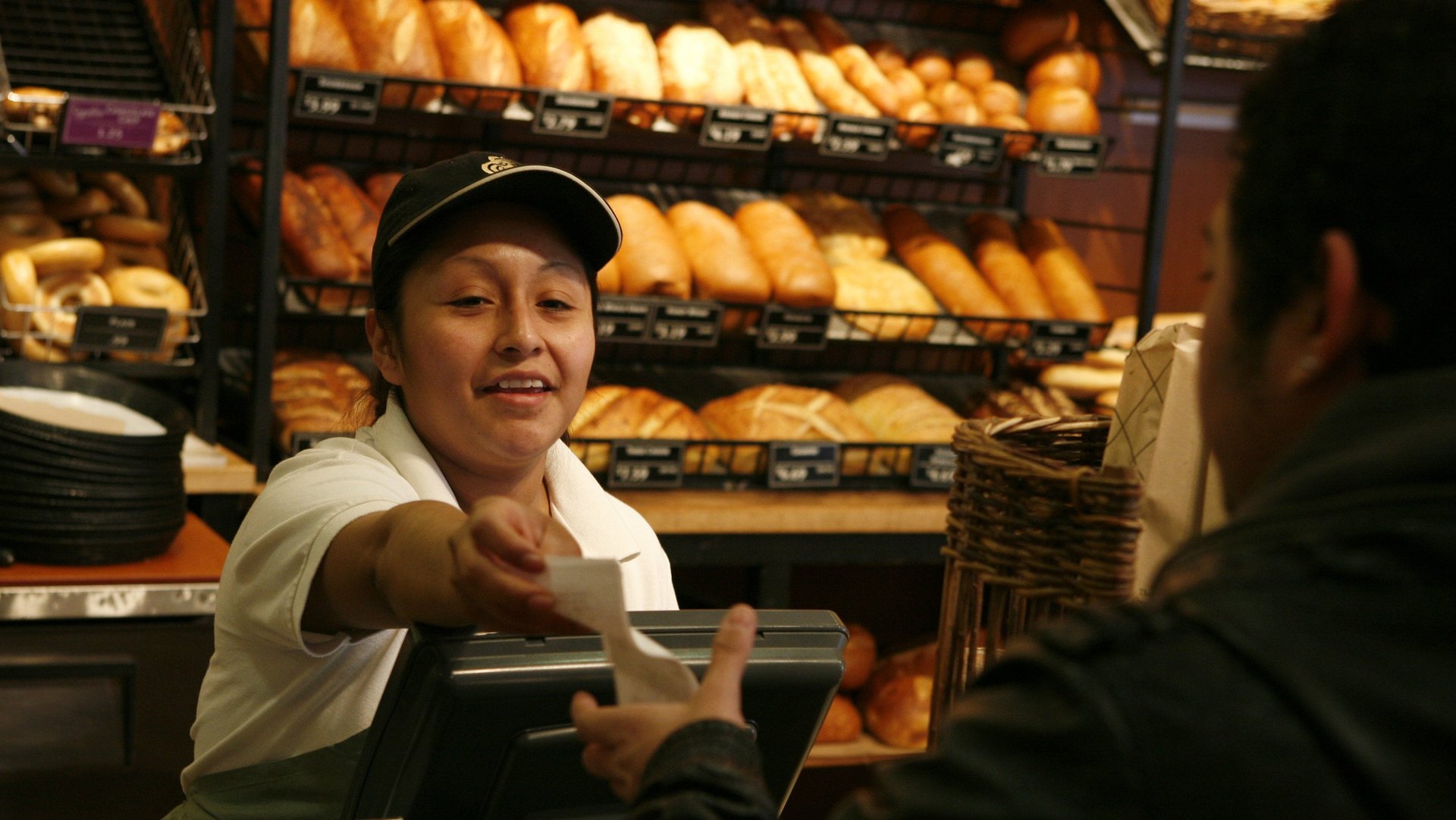Panera Bread is the latest food company to get rid of artificial additives
Panera Bread, the American soup and sandwich chain that helped pioneer the country’s migration to fresher, healthier-seeming fast food, wants to be a little fresher.


Panera Bread, the American soup and sandwich chain that helped pioneer the country’s migration to fresher, healthier-seeming fast food, wants to be a little fresher.
Today, the company publicly published a “No No List” of artificial additives including colors, flavors, preservatives, and sweeteners that are banned from its restaurants as of today in the US (its rollout date in Canada has yet to be determined). The restaurant says it will remove more than 150 ingredients, including aspartame (taken out of Diet Pepsi last month) and azodicarbonamide (aka, the much-maligned yoga mat chemical), as well as old health foes like high-fructose corn syrup and lard. (Also on the list: sucralose, the artificial sweetener replacing aspartame in Diet Pepsi and acesulfame K, the beverage’s other sweetener.)
The move is part of a “clean ingredients” initiative launched last year, which has included reducing antibiotics use in its meats and improving treatment of animals.
Consumer activists differ on the safety of some of the ingredients Panera chose to remove. The Center for Science in the Public Interest, for instance, said that it was happy to see Yellow 5, Yellow 6, and other additives taken off the menus, but that removing others is “more about public relations than public health.”
Panera says it consulted organizations such as the Environmental Working Group, Natural Resources Defense Council, Union of Concerned Scientists and Johns Hopkins Center for a Livable Future on ingredient removals. But ultimately, CEO Ron Shaich tells Quartz, the decisions about which ingredients to keep and which to kick to the kitchen’s curb rested on one question: “‘What do we want to serve our own kids?'”
It’s unclear whether the removal of additives will change the way the food tastes. Shaich says he noticed a better, cleaner taste and “mouth feel” in the company’s reformulated Greek salad dressing, now made without artificial flavors and preservatives, but said customers could just as easily not notice the changes.
Also unclear is how the changes will affect Panera’s prices. Shaich says the company is ”trying very hard not to be faced with that dilemma,” and that he doesn’t currently ”foresee significant pricing changes or margin impact.” Recent ingredient changes at other chain restaurants have impacted prices: Chipotle’s tortilla costs have risen as they’ve used more organic flour, and McDonald’s announcement to reduce antibiotic use in its chicken is expected to cut into profits, either for franchisees, suppliers, or the company.
Higher ingredient costs have already weighed on Panera’s profits in recent quarters.
The ingredient changes won’t give Panera’s menu a clean bill of health. Like some other fast casual chains, the company has been criticized for the high-calorie content of its food. Its Fontina Grilled Cheese, for example, clocks in at 860 calories—more than a McDonald’s Big Mac, which has 530.